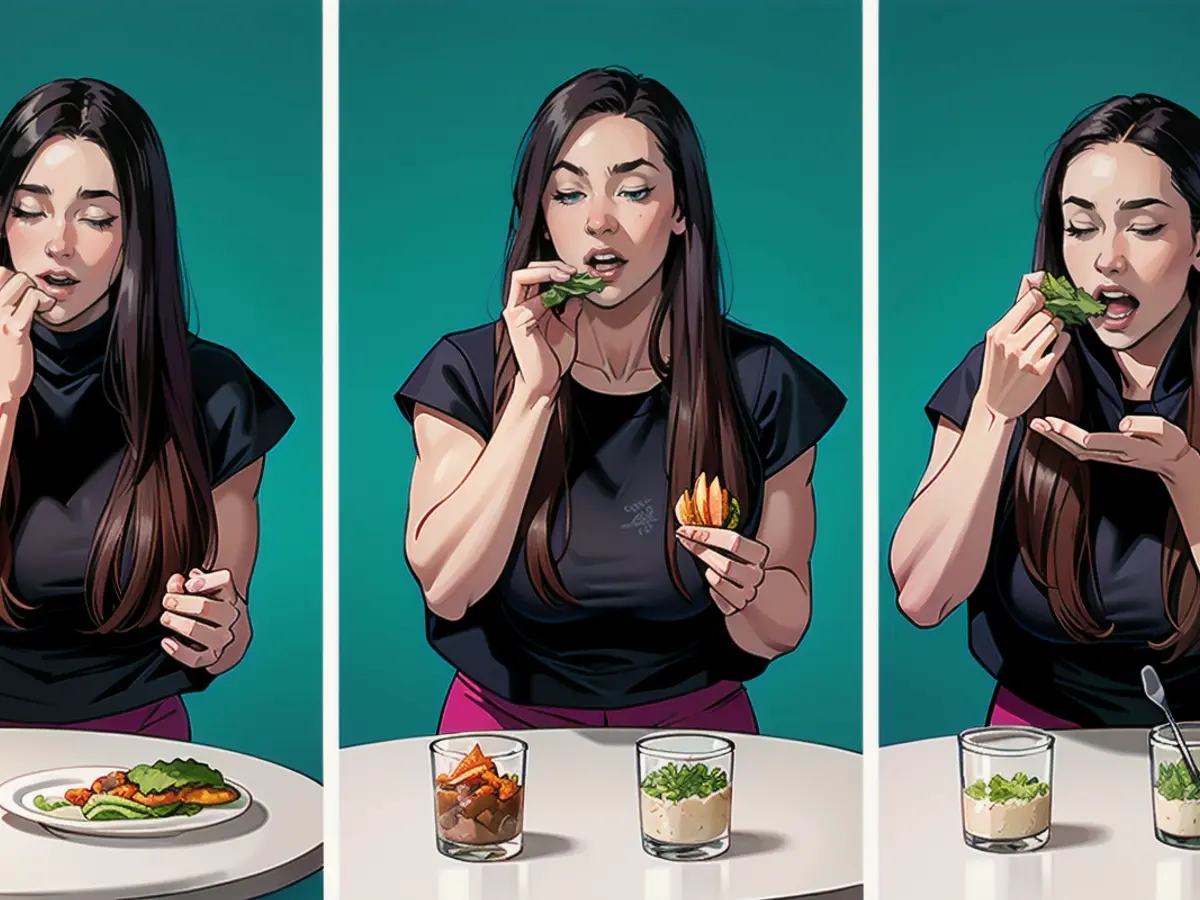U.S. Nutrition Grades Improve from Fail to Passable: Tips to Boost Your Rating to Excellent
A sliver of progress populates the gloomy realm of America's food issues, as per a new analysis of nutritional data spanning two decades.
"There's hope on the horizon. People are beginning to take notice of nutritional advice, and certain businesses and eateries are stepping up to offer healthier options. It's a minor stride, but a step nonetheless," said the study's senior author, cardiologist Dr. Dariush Mozaffarian, director of the Food is Medicine Institute at Tufts University in Boston.
However, he warned, the breakthrough primarily took place between 1999 and 2010, with no subsequent improvements.
"We've hit a standstill as a nation — not a good sign for our health. If I were to grade America's diet, I'd give it a D—a slight improvement from an F," Mozaffarian stated.
Improvement, but more is still needed
The percentage of US adults following an unhealthy diet dropped from approximately 49% to just over 37% between 1999 and 2020, a decrease of 11.4%, while those adhering to a somewhat healthier lifestyle increased by 10.5%, according to the research.
An unhealthy diet included excessive consumption of refined grains, processed meat, sugary beverages, including fruit juice, and ultraprocessed foods, rich in added sugar, salt, and fat, while fruits and vegetables remained scarce.
"The consumption of fruits and vegetables stayed flat over this 20-year period, which is quite alarming," Mozaffarian pointed out.
An optimal diet encompassed the daily recommended servings of fruits and vegetables, along with increased consumption of beans, whole grains, nuts, and seeds. Guidelines like those from the American Heart Association suggest consuming 4 to 5 cups of canned, fresh, or frozen fruits and the same amount for vegetables daily.
The nutritionally optimal diet permitted few sugary beverages, processed meats, refined grains, and ultraprocessed foods. However, the number of individuals following this diet increased by less than 1%.
"People often ask me, 'If the diet's gradually improving, why is obesity and diabetes still on the rise?' It's still on the rise because only 1.58% of Americans follow a nutritionally optimal diet. We still have a long way to go," Mozaffarian explained.
Approximately a million Americans pass away annually from diet-related diseases such as obesity, cancer, heart disease, and type 2 diabetes, according to the US Food and Drug Administration. Meanwhile, unhealthy diets and food insecurity cost the United States a staggering $1.1 trillion in healthcare expenditures and lost productivity annually.
"It's accurate to emphasize that diet quality remains dire in the US. The reasons for the widespread epidemics of obesity and diabetes, and the decrease in life expectancy, are no secret," noted Dr. Walter Willett, a professor of epidemiology and nutrition at the Harvard T.H. Chan School of Public Health in Boston, in an email. Willett was not involved in the study.
Food insecurity is a significant problem
The study, published on Monday in the Annals of Internal Medicine, assessed dietary information from nearly 52,000 US adults who took part in the National Health and Nutrition Examination Survey (NHANES).
The improvements were most notable among women, younger adults, Hispanic adults, and those with higher education and income levels who had access to private health insurance. Minimal advancements were observed in men, older adults, Black individuals, and those with lower income levels, less education, non-private health insurance, and food insecurity issues.
"The disparities between various demographic groups persist or even worsen," Mozaffarian commented.
Individuals with lower incomes saw a 5% improvement in nutritional quality, while those with higher incomes experienced a 16% increase in their nutritional score.
"Let's refrain from blaming those who suffer from the flawed US food system for their poor diets," Willett advised. "We aren't teaching nutrition in our schools or providing healthy food options. Our healthcare system is largely absent, allowing advertising to lure children into junk food that shortens their lives, and we indirectly subsidize unhealthy foods in ways that make healthier choices less accessible and costlier for low-income Americans."
Improving your nutrition
Expert advice offers simple ways to enhance the nutritional quality of your diet.
Prepare meals at home as much as possible: "My top recommendation is to shop at the grocery store as much as you can, rather than visiting coffee shops, sandwich shops, or quick-serve restaurants," Mozaffarian suggested. Even dining at a full-service restaurant should be limited, he added. Earlier research by Mozaffarian and his team discovered that about 80% of all food consumed by Americans from restaurants was of poor nutritional quality.
"Interestingly, even when compared to sit-down restaurants, there was no significant difference in quality," he said. Instead, strive for minimally-processed food items to prepare at home and avoid the overabundance of convenience foods at the supermarket. Consider bringing your lunch and snacks to work.
Avoid that sweet rush. With people starting to realize that sugary sodas are harmful, it's about time they comprehend that energy, sports, and caffeinated drinks can be just as sugar-filled, stated Mozaffarian.
"Energy drinks, artificially sweetened iced teas, and fancy coffee drinks can pack more sugar than soda," he mentioned, adding, "I see people leaving the coffee shop with drinks smothered in whipped cream. Stay away from those sugars."
Once sugary beverages are excluded from the mix, only "6% of calories in the nation come from added sugar in food," Mozaffarian pointed out. "On the flip side, around 35% of calories in the nation stem from refined grains and starches."
Reduce refined grains. In general, the primary culprit behind the poor dietary habits of Americans is refined grains, with an average of 5.2 servings per day — "nearly two servings per meal of refined grains like refined bread, refined rice, crackers, chips, and other ultra-processed foods," Mozaffarian noted.
Whole grains, with their intact bran and germ, are filled with a nutritional powerhouse of healthy fats, antioxidants, minerals, and E and B vitamins. Unlike refined grains, whole grains take longer to digest, don't cause a quick spike in blood sugar levels, and boast more fiber, which can lower the chance of chronic diseases, aid in weight loss, and enhance digestion.
"For example, whole grains consist of barley, bulgur, farro, millet, quinoa, black rice, brown rice, red rice, wild rice, oatmeal, and popcorn," according to My Plate, the official USDA website.
Refined grains, such as white flour, corn grits, white bread, and white rice, have been refined to improve texture and shelf-life, with the process removing valuable nutrients like dietary fiber, iron, and vitamins. These refined grains can be found in almost every ultra-processed food, including breakfast cereals, desserts, pastries, bread, and crackers.
Replace refined grains. In lieu, enrich your gut microbiome with fruits, vegetables, legumes, nuts, seeds, and minimally-processed whole grains," Mozaffarian suggested. Adding fermented foods such as yogurt, sauerkraut, and kimchi can also aid in maintaining a healthy gut microbiome.

Read also:
The introduction of healthier options in certain businesses and eateries is a result of people taking notice of nutritional advice, which can contribute to overall wellness.
In an optimal diet, sugary beverages, such as fruit juice, should be limited, as they are often rich in added sugar.








